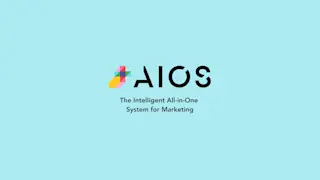The Modern CMOs' Guide to Marketing Technology
Keeping up with all the new drops in marketing technology can be challenging for today's Chief Marketing Officers (CMOs). With so many options available, how does one determine which tools will best service their company's needs? In this guide, we'll cover new marketing technology trends like artificial intelligence (AI), data analytics, and automation. We'll also highlight what to consider when evaluating technology solutions, like integration with your existing systems and cost-effectiveness.

Essential Marketing Technologies
By leveraging the right marketing technology, CMOs can gain a competitive edge and drive strong business growth. Here are the key marketing technologies to consider, whether you're looking to streamline operations, improve customer engagement, or increase return on investment (ROI).
Customer Relationship Management (CRM) Systems : CRM systems are essential for managing customer interactions and relationships. They allow us to track customer behavior, preferences, and history, which can help us personalize our marketing efforts. A few popular CRM systems include Salesforce, HubSpot, and Zoho.
Content Management Systems (CMS) : A CMS allows us to create, manage, and publish digital content. It's essential for organizing content for our websites, blogs, and social media channels. WordPress, Drupal, and Joomla are some of the most popular CMS options available.
Email Marketing Platforms : Email marketing is still one of the most effective ways to reach our customers. These platforms enable us to automate our email campaigns, segment our audience, and track the performance of our emails. Popular email marketing platforms include Mailchimp, Constant Contact, and Campaign Monitor.
Analytics and Data Visualization Tools : Analytics and data visualization tools are essential for understanding our audience and measuring the success of our marketing efforts. They allow us to track website traffic, social media engagement, and other key performance metrics. Google Analytics, Tableau, and Domo are some of the most popular analytics and data visualization tools available.
Strategic Implementation
Keep in mind that strategic implementation is just as important as the technology itself. Here are some key considerations for successful implementation:
Aligning Tech with Marketing Goals : Before implementing any marketing technology, it's important to assess whether it aligns with our marketing goals. You must ensure that the technology will help you achieve your objectives—whether it's increasing brand awareness, driving conversions, or improving customer engagement.
Data Security and Privacy Compliance : As custodians of customer data, we must ensure to meet all the necessary security and compliance standards. This includes ensuring that our vendors are GDPR and CCPA compliant, and necessary data breach response plans are in place.
Integration for Omnichannel Marketing : To achieve a seamless omnichannel marketing experience, we must ensure that we integrate our marketing technology across channels. Our email, social media, and website should work together for a consistent customer experience.
Evaluating and Selecting Vendors : When evaluating and selecting vendors, we need to consider factors such as cost, functionality, and ease of use. We should also consider the vendor's reputation, customer support, and track record of success. A thorough evaluation process will help ensure that we choose the right vendor for our needs.
By considering these key factors, we can ensure that our marketing technology implementation is strategic and successful.
Share





